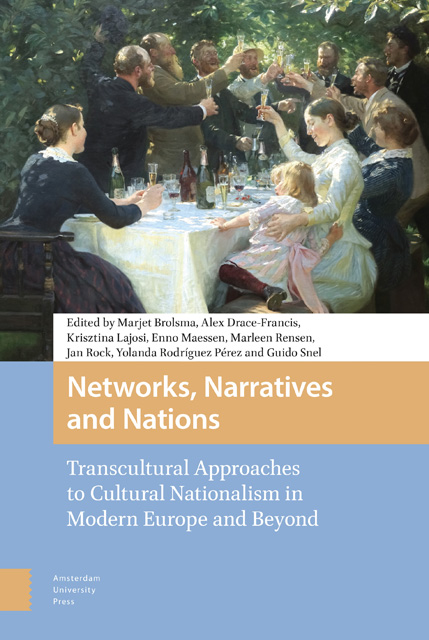 Networks, Narratives and Nations
Networks, Narratives and Nations Book contents
5 - Firebrand Folklore: Musical Memory and the Making of Transnational Networks
Published online by Cambridge University Press: 16 November 2022
Summary
Abstract
What is the place of music and specifically of collective singing in political mobilization? This chapter builds on Joep Leerssen's work on the role of choral societies in Romantic nationalism to examine the role of singing in radical, internationalist circles in the late nineteenth century. Focusing on two songs in the socialist-anarchist repertoire – the traditional Scottish love song “Annie Laurie” and the “Marseillaise” – it examines the role of musical performance in mobilization around a common cause. It argues that music helped in creating embodied communities at particular locations while also connecting people transnationally across time and space.
Keywords: embodied communities; cultural memory; internationalism; connective action; “Annie Laurie”; the “Marseillaise”
On the evening of 30 November 1888, a crowd gathered on the platform of St Pancras Station in London to bid farewell to Mrs. Lucy Parsons. She was the widow of American anarchist Albert Parsons and had been visiting Great Britain for various commemorative events marking the first anniversary of the execution of her husband and the other “Chicago Martyrs.” She had been invited to Great Britain by the Socialist League and had been hosted by William Morris, editor of the Commonweal: The Journal of the Socialist League, a journal which for several years had been denouncing the execution of the Chicago anarchists as a miscarriage of justice and an attack on civil liberties. There had been huge publicity around Lucy's visit within radical circles, although her firebrand, anarchist-inflected rhetoric had also created some tension with her socialist hosts. Nonetheless, the visit seems to have been a success and the report of her leave-taking, as she set off for home through the port of Liverpool, makes no mention of any visible rifts between her and her hosts.
According to the Commonweal (8 December 1888) the platform was crowded “with Socialists of all opinions and nationalities” who, among other expressions of allegiance to Mrs. Parsons and the workers’ cause, sang “Annie Laurie” together. Subsequently, as the train left the station “amid cheers” the “strains of the Marseillaise” could be heard.
- Type
- Chapter
- Information
- Networks, Narratives and NationsTranscultural Approaches to Cultural Nationalism in Modern Europe and Beyond, pp. 75 - 84Publisher: Amsterdam University PressPrint publication year: 2022


